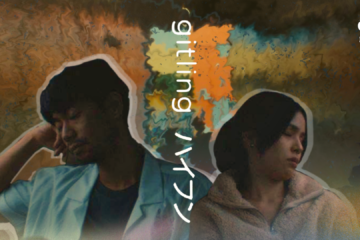By IAN JOZEL N. JEREZ

THE INDIVIDUAL is gifted with a life which he expects to become a perfect terrain and spiritual force devoid of struggles, sufferings, and mysteries, but he is also faced with the menace of death—the opposing force of life. The curiosity about what lies beyond the currents of human life and suffering is also the trigger of one’s downfall, bringing damage upon oneself.
Directed by Timmy Harn, Dog Days is an entry to the Circle Competition for this year’s QCinema International Film Festival. The story revolves around Michael Jordan Ulili (Ybes Bagadlong), a teenager without a family and a basketball player who is desperate to have a team. His life is shown to be a living hell that becomes exacerbated when he accidentally impregnates his girlfriend Maureen (Barbara Ruaro). As Michael realizes his purpose within repressive spaces, he begins to crumble and become a threat to himself and to his sanity.
Within the film’s dark tone is the struggle of women in a society dominated by male figures who display harmful and toxic behaviors. This struggle is evident in the character of Maureen, who is overshadowed by Michael’s hegemonic masculinity. Maureen does not only suffer from the pregnancy but also blames herself for all the hardships she experiences. Michael behaves violently and almost attacks her physically when they are struck by the reality that they are incapable of survival without the support of Maureen’s parents and Michael’s aunt. The film’s portrayal of Maureen as a woman living in misery reflects the social realities of teenage pregnancy and the risk of abortion. Harn delivers this dark turn in the characters’ lives through the brilliant cinematography of Albert Banzon and Jippy Pascua, which makes the viewers unsettled due to the film’s atmosphere.
The performances of Bagadlong and Ruaro make Dog Days a masterful craft of Philippine cinema as they portray characters that resist the norms of power and its repressive institutions. Ruaro delivers a bravura performance as the sympathetic Maureen who is raw and breathtaking, while Bagadlong’s portrayal of the tragic character of Michael is a rare kind of performance that leaves the audience moved and empathetic.
The film also uncovers the theme of marvelous reality where magic and witchcraft become the central forces within social structures and the individual. The usage of this theme is essential to how the film executes the dark nature of its narrative, particularly in the opening scene, which informs the audience of the film’s somber tone and its unsettling proposition that the self may also be the cause of one’s own downfall and hamartia.
The film showcases the depths and undercurrents of racism, which is reflected in the character of Alonzo Manrique, who continuously bullies Michael by calling him negro. Since the Manriques are fair skinned, they easily make the assumption that they possess the higher ground and disregard Michael’s efforts and show their distaste for his dark skin.
The film succeeds in bringing out the horrors of living an undetermined life, and its usage of a black and white screen throughout its narrative helps the film convey its message to viewers: there is an impending force that intends to invade the consciousness of the characters. The close-ups of the faces of the characters unveil their raw emotion, and this is emphasized in crucial scenes where the audience is left pondering what may have transpired after witnessing the grotesque mood of the film’s narrative. These characters are victims of power structures that control and manipulate societal spaces, particularly the poverty-stricken and the marginalized.
Harn’s spectacular direction, together with the emotional performances of Bagadlong and Ruaro, make Dog Days a masterpiece. It tells us of the horrors of life as a temporary force and it promotes the idea that we continuously suffer under oppressive power systems that delve into the depths of society. F



